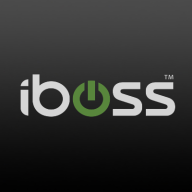


HashiCorp Vault and JumpCloud are engaging in a competitive match in the realm of security and identity services. HashiCorp Vault takes the lead in security with its robust capabilities in data protection, whereas JumpCloud shines in identity management due to its comprehensive features.
Features: HashiCorp Vault is distinguished by advanced secret management, automated key storage, and dynamic secrets, allowing secure storage and access to sensitive information. JumpCloud offers a unified directory platform with multi-factor authentication, user lifecycle management, and device management, catering extensively to identity management needs.
Room for Improvement: HashiCorp Vault could enhance its ease of use for beginners, integrate more seamlessly with a broader array of third-party services, and offer more competitive enterprise pricing. JumpCloud could improve its on-premise service integration, expand its policy management flexibility, and enhance its reporting capabilities for better user insights.
Ease of Deployment and Customer Service: HashiCorp Vault supports flexible deployment for both open-source and enterprise applications, accompanied by comprehensive documentation and community support. In contrast, JumpCloud's cloud-based nature simplifies deployment, eradicating the need for on-premise infrastructure and offering strong platform support.
Pricing and ROI: HashiCorp Vault might impose higher costs due to its complex setup and premium features, yet it delivers substantial ROI for businesses prioritizing security. JumpCloud typically provides a more predictable pricing model with inclusive features, potentially offering enhanced ROI for small to medium-sized businesses focusing on integrated identity management solutions.



| Company Size | Count |
|---|---|
| Small Business | 6 |
| Midsize Enterprise | 6 |
| Large Enterprise | 5 |
| Company Size | Count |
|---|---|
| Small Business | 5 |
| Midsize Enterprise | 4 |
| Large Enterprise | 9 |
| Company Size | Count |
|---|---|
| Small Business | 13 |
| Midsize Enterprise | 2 |
| Large Enterprise | 3 |
Iboss offers a comprehensive cloud-based security platform valued for its scalability and autonomous features, ensuring robust security with easy deployment and management capabilities.
Renowned for its robust security architecture, Iboss integrates seamlessly within diverse networks, delivering efficient granular filtering and advanced content categorization. Its single pane of glass console provides ease of management, allowing rapid scalability suitable for rapidly deploying environments. Operates in BYOD setups due to inline filtering without device installation. Integration with cloud-based applications enhances user control, and features like SASE, SSL inspection, and ChatGPT risk protection stand as highlights. Despite its strengths, users have pointed out areas for enhancement like direct navigation in reports, SSL decryption, and better cloud integration while having room to improve data loss prevention.
What are the most important features of Iboss?The usage of Iboss spans educational institutions, specifically K-12, to enforce internet policies, protect data, and support remote work environments. It provides web filtering and security frameworks to ensure safe browsing. Its platform-as-a-service model offers flexibility for both cloud-based and on-premises requirements, integrating seamlessly to deliver enhanced security features suitable for various deployment needs including zero trust, CASB, and network security for work-from-home setups.
HashiCorp Vault is a cloud-agnostic solution used for security and secret management. Its valuable features include integration with other HashiCorp tools, token sharing, open source nature, cloud agnosticism, and on-the-fly encryption management.
The solution provides encryption of data at rest, in use, in transit, on the fly, and linked with applications. It is free to use, and the interface is simple to navigate. HashiCorp Vault has helped organizations with its multiple authentication methods and RESTful API.
HashiCorp Vault Features
Reviews from Real Users
“The greatest benefit of HashiCorp is its ability to manage encryption on the fly. It provides encryption of data at rest, in use, in transit, on the fly, and linked with applications, which was really attractive. The lifecycle of a key is so easy to manage in terms of rotating, revoking, and issuing. They have different auth methods, and I tried all different auth methods. It is seamless.”- Project Manager at a comms service provider.
“The most valuable feature of HashiCorp Vault is that it's an open source solution. Second, it's cloud-agnostic, so it's very easy to maintain and control, which is why we prefer HashiCorp. “ - Mohamed A., Lead DevOps Engineer at Etisalat.
JumpCloud offers efficient device management, single sign-on, and integration capabilities. It integrates seamlessly with Microsoft 365 and Google Workspace, streamlining user management across diverse environments.
JumpCloud delivers device, user, and application management across platforms like Windows, Mac, Linux, and cloud services such as AWS and Azure. Acting as a cloud-based directory, it facilitates single sign-on and identity access management, making it an attractive replacement for Active Directory and LDAP directories. Its policy management and centralized directory simplify user and device administration, offering a user-friendly interface with flexible access control and remote management. Organizations can experience streamlined onboarding and offboarding processes, robust authentication, and scalability. Despite being powerful, room for improvement is noted in alert capabilities, comprehensive MDM for Windows, multi-tenant features, and API reliability.
What are the key features of JumpCloud?Companies across industries utilize JumpCloud for comprehensive management of devices and user identities. It is especially beneficial in technology-driven sectors where centralized directory services replace traditional Active Directory and LDAP models. Organizations employing platforms like AWS and Azure find it essential for maintaining efficient and secure access management.
We monitor all Enterprise Password Managers reviews to prevent fraudulent reviews and keep review quality high. We do not post reviews by company employees or direct competitors. We validate each review for authenticity via cross-reference with LinkedIn, and personal follow-up with the reviewer when necessary.